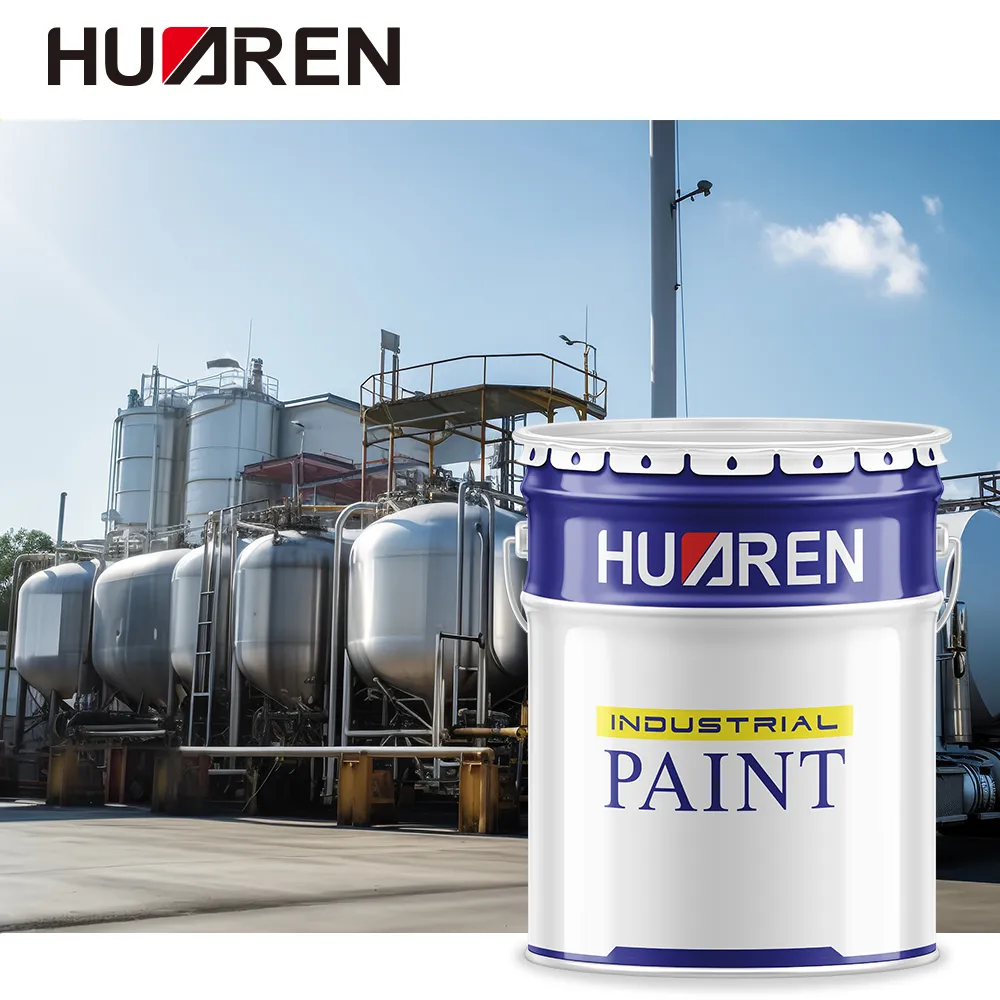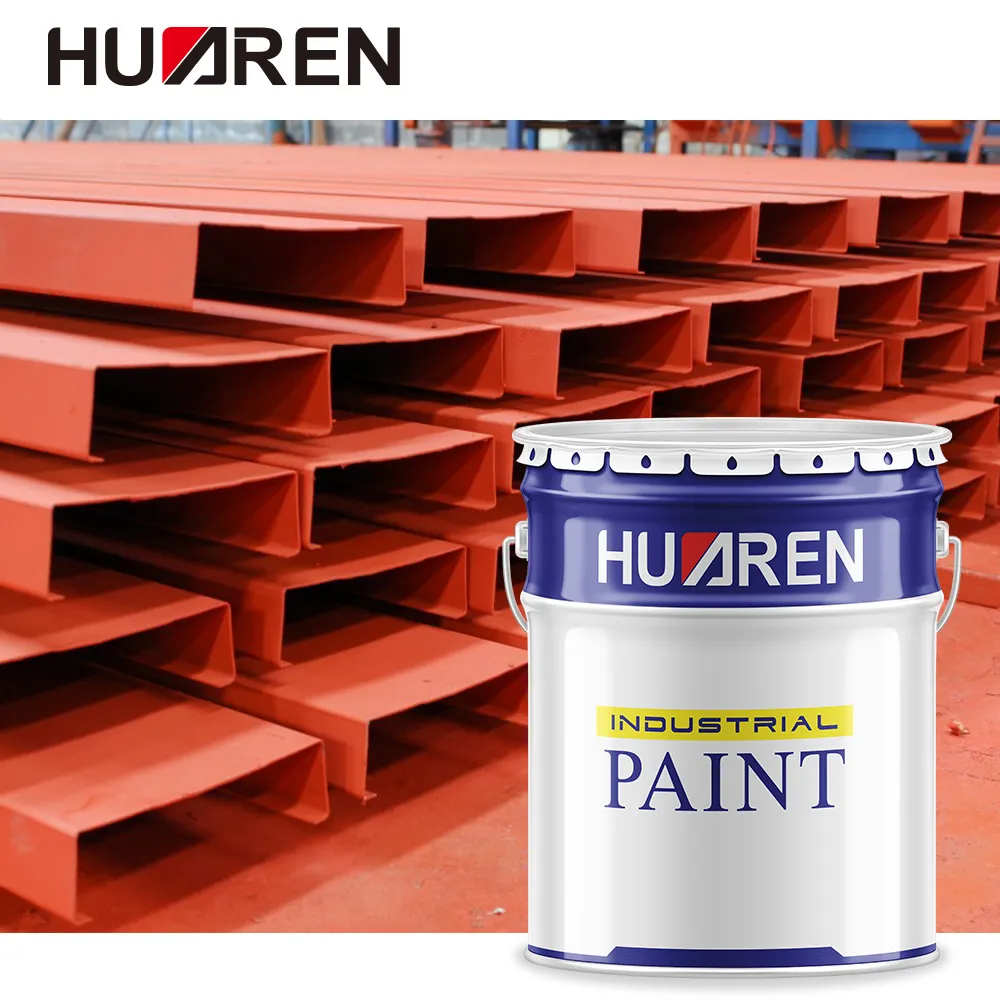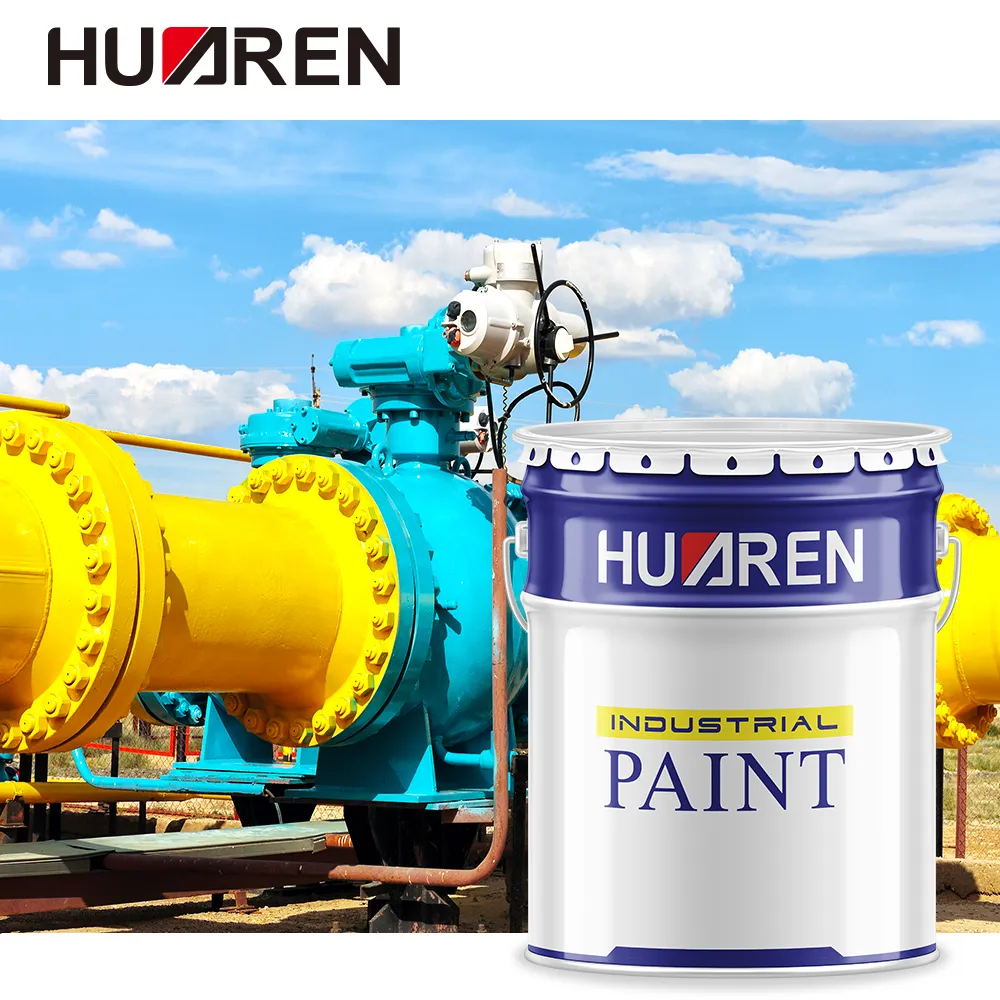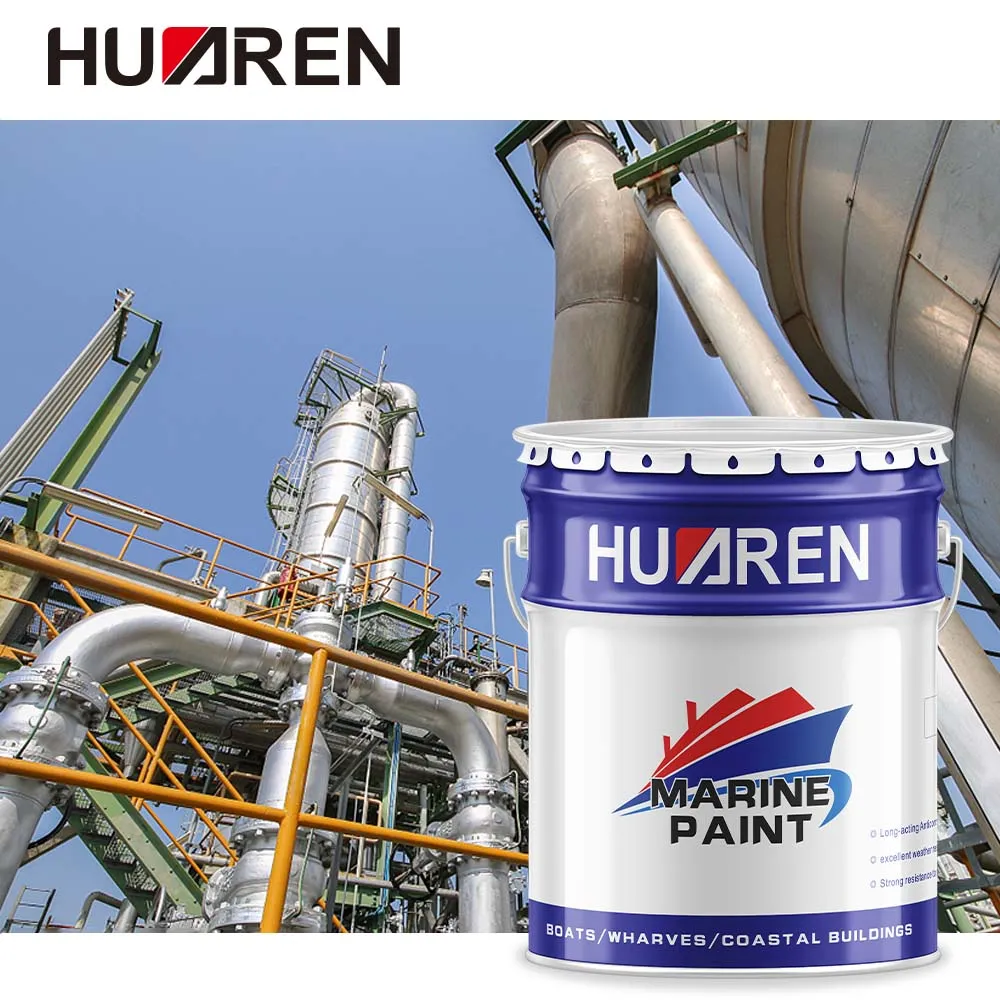Steel is widely used in many fields such as construction, ships, bridges, industrial equipment, etc. However, when exposed to the natural environment, steel is extremely susceptible to corrosion, especially in humid, salty or acidic atmospheric environments. Corrosion not only affects the strength and life of steel, but also brings huge economic losses. Therefore, anti-corrosion coatings have become a necessary means to protect steel.
In the field of anti-corrosion, coating technology is currently one of the most common and effective protection methods. Anti-corrosion coatings can not only effectively isolate corrosive media in the environment, but also enhance the corrosion resistance of the steel surface.
This article will comprehensively introduce the main types of anti-corrosion coatings for steel, analyze their characteristics and applicable scenarios, and help readers better understand how to choose suitable anti-corrosion coatings for steel.

What is the principle of steel corrosion?
Before discussing the types of anti-corrosion coatings, first understand the basic principles of steel corrosion. Steel corrosion is an electrochemical reaction that usually occurs when the steel surface comes into contact with the external environment. Steel reacts chemically with moisture, oxygen, and possible salts in a humid environment to produce iron oxide, which is commonly seen as rust. This corrosion will not only affect the appearance of steel, but more importantly, it will cause the strength of the material to decrease, which will in turn affect the safety of the structure.
In order to extend the service life of steel and prevent problems caused by corrosion, a protective layer must be formed on the surface of the steel to prevent the invasion of corrosion factors. Anti-corrosion coating is one of the common and effective means.
What types of steel anti-corrosion coatings are there?
Main types of steel anti-corrosion coatings:
1. Epoxy anti-corrosion coatings
2. Polyurethane anti-corrosion coatings
3. Zinc-rich anti-corrosion coatings
4. Inorganic zinc silicate coatings
5. Asphalt-based anti-corrosion coatings
6. Polyurea anti-corrosion coatings
7. Acrylic anti-corrosion coatings
Steel anti-corrosion coatings can be divided into many types according to their composition, function and coating method. Each anti-corrosion coating has its unique advantages and applicable scenarios. The following is an introduction to these 7 common steel anti-corrosion coatings:

Epoxy anti-corrosion coatings
Epoxy anti-corrosion coatings are one of the most widely used steel anti-corrosion coatings, and are widely used for surface protection of bridges, offshore platforms, storage tanks and various industrial equipment.
Features of epoxy anti-corrosion coating:
● Excellent adhesion: Epoxy coating has strong bonding with the steel surface and can firmly adhere to the surface of the substrate to form a solid protective layer.
● Good corrosion resistance: Epoxy coating has good resistance to water, acid, alkali and other chemicals, and is suitable for various corrosive environments.
● High wear resistance: Epoxy coating has high hardness and good wear resistance, and can effectively prevent mechanical wear.
● Easy construction: Epoxy coating has good coating properties and is relatively simple to construct.
Application scenarios of epoxy anti-corrosion coating:
● Suitable for steel structures such as ships, oil tanks, and offshore platforms that are exposed to corrosive environments for a long time, especially in humid environments and chemical plants.
Polyurethane anti-corrosion coating
Polyurethane anti-corrosion coating occupies an important position in anti-corrosion coatings due to its excellent weather resistance and anti-aging properties.
Features of polyurethane anti-corrosion coating:
● Excellent weather resistance: Polyurethane coating has good resistance to external factors such as ultraviolet rays and weathering, and is particularly suitable for steel exposed to outdoor environments for a long time.
● Good elasticity: Polyurethane coating has a certain elasticity and can withstand the expansion and contraction of steel when the temperature changes or the deformation is stressed, avoiding cracking of the coating.
● Chemical corrosion resistance: Polyurethane coating can resist certain chemical corrosion and is suitable for environments with mild chemical corrosion.
Application scenarios of polyurethane anti-corrosion coating:
● Polyurethane coating is widely used in bridges, building steel structures and outdoor equipment, especially for those exposed to the sun and requiring UV resistance.
Zinc-rich anti-corrosion coating
Zinc-rich anti-corrosion coating is a coating with zinc powder as the main component, which uses the electrochemical protection of zinc to prevent corrosion of steel. Zinc-rich coating is often used in heavy industrial environments, especially marine environments and industrial facilities.
Features of zinc-rich anti-corrosion coating:
● Cathodic protection: The main anti-corrosion mechanism of zinc-rich coating is to use the chemical properties of zinc that are more active than steel. Zinc is first oxidized in the coating, thereby protecting the steel from corrosion. This "sacrificial anode" effect is particularly effective in corrosive environments.
● Strong durability: Zinc-rich coating has a long service life and can provide long-term protection, especially in salty and humid environments.
● Good chemical resistance: Zinc-rich coatings have strong resistance to acid and alkali environments and are suitable for use in highly corrosive chemical environments.
Application scenarios of zinc-rich anti-corrosion coatings:
● Zinc-rich anti-corrosion coatings are widely used in steel structures, bridges, ships and various chemical facilities in marine environments, and can provide long-term and effective protection for steel.
Inorganic zinc silicate coatings
Inorganic zinc silicate coatings are a type of coating composed of zinc powder and inorganic silicates, and are often used in situations requiring high corrosion resistance.
Features of inorganic zinc silicate coatings:
● Excellent high temperature resistance: Inorganic zinc silicate coatings can withstand high temperatures and are not prone to decomposition and peeling, so they are suitable for high temperature environments.
● Good chemical corrosion resistance: Due to its special composition, inorganic zinc silicate coatings can resist erosion by chemicals such as acids, alkalis, and salts.
● Cathodic protection: Similar to zinc-rich coatings, inorganic zinc silicate coatings can also provide cathodic protection to prevent corrosion of steel.
Application scenarios of inorganic zinc silicate coating:
● This coating is widely used in high-temperature facilities, petrochemical equipment and power plants, and is suitable for environments with high temperature and strong chemical corrosion.
Asphalt-based anti-corrosion coating
Asphalt-based anti-corrosion coating is a coating with asphalt as the main component. It has good water resistance and impermeability, and is mainly used for underground and underwater steel structure anti-corrosion.
Characteristics of asphalt-based anti-corrosion coating:
● Excellent waterproof performance: The main advantage of asphalt-based coating is its excellent waterproof performance, which can effectively prevent moisture from penetrating into the surface of steel and reduce the occurrence of corrosion.
● Strong adhesion: Asphalt coating can adhere well to the surface of steel and maintain its protective effect even in a long-term humid environment.
● Good durability: Asphalt-based coating has a long service life and is suitable for use in long-term immersion or humid environments.
Application scenarios of asphalt-based anti-corrosion coating:
● Asphalt-based anti-corrosion coating is widely used in underground pipelines, storage tanks and port facilities, especially for steel structures that are exposed to water or humid environments for a long time.

Polyurea anti-corrosion coating
Polyurea anti-corrosion coating is a high-performance coating developed in recent years. It has a place in the field of anti-corrosion with its fast curing and excellent protective performance.
Features of polyurea anti-corrosion coating:
● Fast curing: Polyurea coating cures very quickly, usually within a few seconds to a few minutes. It is very suitable for occasions that require rapid construction.
● Excellent anti-corrosion performance: Polyurea coating has extremely high chemical resistance and wear resistance, and can provide comprehensive protection for steel.
● High and low temperature resistance: Polyurea coating can maintain its stability in high and low temperature environments, and is not easy to age or deteriorate.
Application scenarios of polyurea anti-corrosion coating:
● Polyurea anti-corrosion coating is often used in large-scale projects that require rapid protection, such as water conservancy facilities, bridges and offshore platforms.
Acrylic anti-corrosion coating
Acrylic anti-corrosion coating is mainly composed of acrylic resin and has good weather resistance and water resistance.
Features of acrylic anti-corrosion coating:
● Strong weather resistance: Acrylic coating has excellent UV resistance and is suitable for anti-corrosion protection of outdoor steel structures.
● Good environmental protection: Acrylic paint is usually a water-based paint, which is more environmentally friendly and reduces pollution to the environment.
● Easy construction: Acrylic paint is easy to apply and dries quickly, making it suitable for large-area coating.
Application scenarios of acrylic anti-corrosion coating:
● Mainly used for outdoor steel structure anti-corrosion, such as billboards, fences, and general building structures.

What are the selection factors of anti-corrosion coating?
When choosing anti-corrosion coating for steel, environmental conditions must be considered. Different environments have different degrees of corrosion on steel. For highly corrosive environments such as oceans and chemical plants, coatings with strong chemical corrosion resistance should be selected, while in general environments, coatings with good weather resistance can be selected. If steel is exposed to the outdoors for a long time, especially in high temperature, humidity, or high salt environments, highly adaptable anti-corrosion coatings must be selected. In addition, the construction processes and conditions of different coatings are different, and the actual conditions and construction costs on site should be considered during construction.

